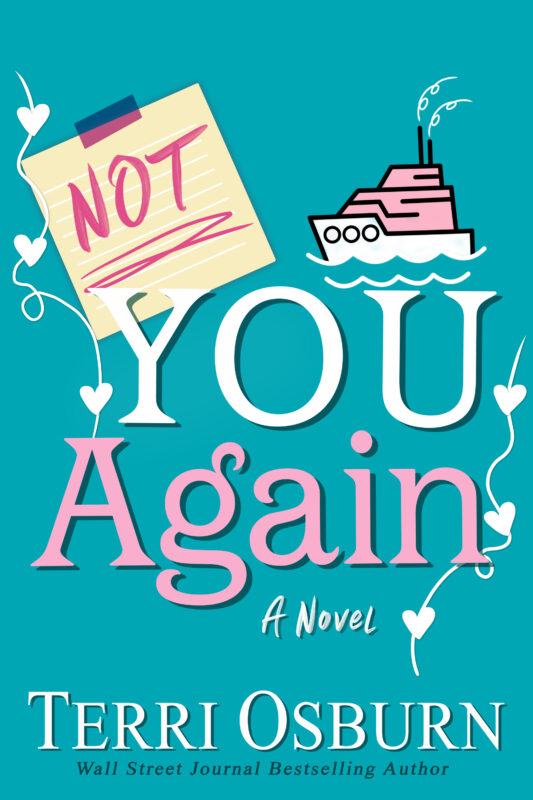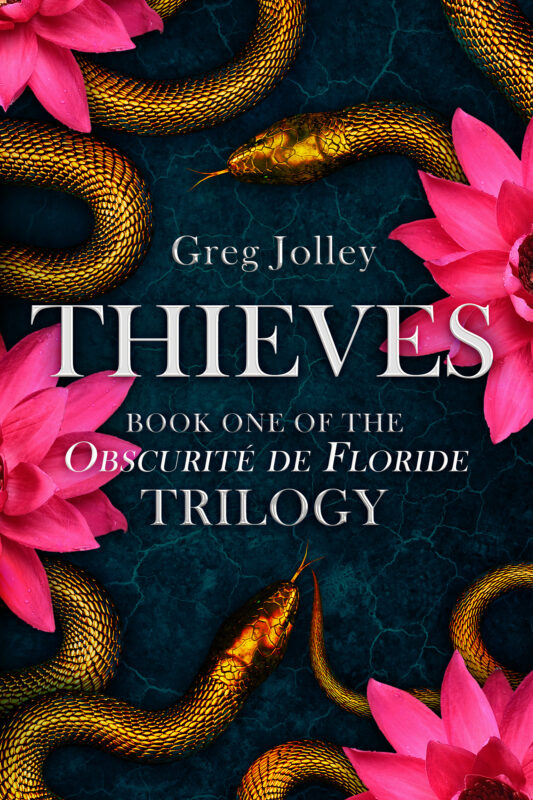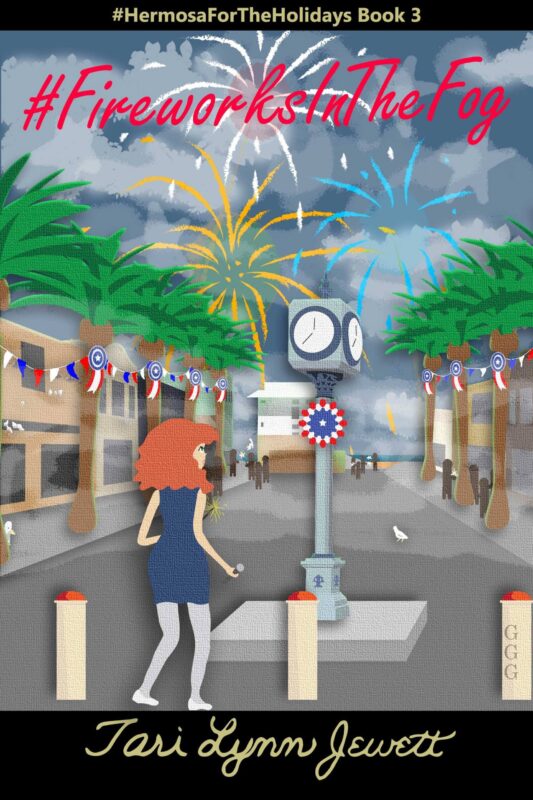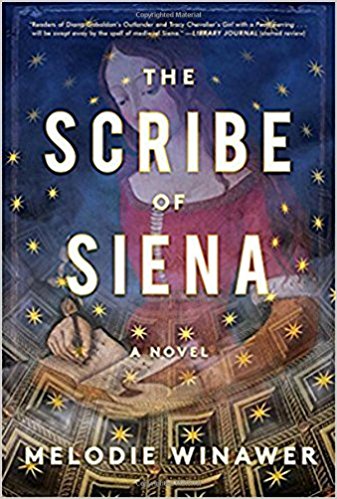The Orange Rose Contest for Unpublished Writers is OPEN
February 13, 2015 by Marianne H. Donley in category Archives tagged as The Charlotte, The Orange Rose ContestWelcome to the Orange County Chapter/RWA’s 32nd annual Orange Rose Contest for Unpublished Writers! This year’s contest will be bigger and better than ever, with a revamped score sheet and final round judging by acquiring editors and agents. Have a look at this fantastic roster:
- Bess Cozby, Editorial Assistant, Tor/Forge Books
- Cat Clyne, Editor, Sourcebooks
- Katherine Pelz, Assistant Editor, The Berkley Publishing Group, div. of Penguin Random House
- Brenda Chin, Editorial Director, ImaJinn (an imprint of BelleBooks)
- Jill Limber, Editor, Boroughs Publishing group
- Priyanka Krishnan, Associate Editor, Ballantine Bantam Dell of Random House
- Tera Cuskaden, Editor, Samhain
- Alycia Tornetta, Editorial Director, Entangled
- Raela Schoenherr, Editor, Bethany House
- David Long, Executive Editor, Bethany House
- Flo Nicoll, Editor, Harlequin UK/Mills and Boon
- Karen Reid, Associate Editor, Harlequin
- Nicole Fisher, Editorial Assistant, Avon Books and Avon Impulse
- Courtney Miller-Callihan, Agent, Sanford J. Greenburger Associates
- Nalini Akolekar, Literary Agent, Spencerhill Associates
Also new this year: Finalists are chosen by their overall score in each category, so we’ll have a first, second and third-place winner in each category. The contest deadline is April 15, 2015, so polish up those opening pages (maximum 35 pages including a synopsis, electronic submission) and check out all the contest rules and other details at www.occrwa.org/orangerosecontest . While you’re there, read the story of the Charlotte Award (our top prize) and don’t miss the informative editor/agent Q & A blogs and stories from past contest winners and finalists. Make the Orange Rose Contest for Unpublished Writers your goal for 2015. You won’t want to miss out on this one!
Contest Chairs:
Maria Powers
Jann Ryan
Barb DeLong
OCC/RWA
A Short Interview with Kat Martin
February 10, 2015 by marianne h donley in category Spotlight tagged as Against the Sky, Kat Martin, romantic suspense New York Times bestselling author Kat Martin is a graduate of the University of California at Santa Barbara where she majored in Anthropology and also studied History. Before she started writing in 1985, Kat was a real estate broker. During that time she met her husband, L.J. Martin, author of thirty western, non-fiction, historical, and suspense novels. A resident of Missoula, Montana, Kat and her husband spend their winters in Ventura, California. She is a currently writing her next Romantic Suspense.
New York Times bestselling author Kat Martin is a graduate of the University of California at Santa Barbara where she majored in Anthropology and also studied History. Before she started writing in 1985, Kat was a real estate broker. During that time she met her husband, L.J. Martin, author of thirty western, non-fiction, historical, and suspense novels. A resident of Missoula, Montana, Kat and her husband spend their winters in Ventura, California. She is a currently writing her next Romantic Suspense.
With fifty-five novels to her credit and more than fifteen million copies of her books in print, Ms. Martin has been published in twenty-one foreign countries including France, Japan, Greece, Argentina, Russia, Sweden, Turkey, China, and Spain. Here is a short interview with Ms. Martin.
Have you ever suffered writer’s block? If so, how did/do you get past it?
I mostly suffer plotting block…that means I have my hero and heroine in deep trouble and I’m racking my brain, trying to figure out how to get them out. I spend about half the time thinking and the other half writing a book. I make a lot of notes, try to get some input from my husband, who’s also a writer.
What profession other than your own would you love to attempt?
I wanted to be an astrophysicist. Unfortunately, I don’t have that big a brain.
What’s the funniest (or sweetest or best or nicest) thing a fan ever said to you?
I had a wonderful email yesterday from a fan thanking me for the uplifting words I said to her mother who has cancer. Sometimes readers tell me they escape their problem in the pages of my books. I love hearing that.
If you could travel back in time whom would you like to meet and why?
Be fun to meet Buffalo Bill Cody. He was a true hero and a legend, a handsome man in his day, too!
If a space ship landed in your backyard and the aliens on board offered to take you for a ride, would you go? Why or why not?
I would definitely go with them. Life on earth is much too short. Gotta jam in all you can. Imagine what you could learn from a trip to another planet?
What’s the best thing about being an author?
The great people you meet and the places you get to visit to research a book.
What are you currently working on and when can we read it
I just finished the edits for Against the Tide, which is Rafe Brodie’s story. It’s the last of my Brodies of Alaska series, out May 27th. After that, I’m sticking with the Brodies, introducing Nick’s cousin Ethan, a hunky PI and bodyguard who works at BOSS, Inc in Seattle, the first of my INTO books. Into the Fury is book #1, out February, 2016.
You can read more about Kat on her website: www.KatMartin.com.
Or follow her on social media:
Facebook: https://www.facebook.com/KatMartinAuthor
Twitter: @katbooks https://twitter.com/katbooks
Pinterest: http://www.pinterest.com/luvromance/
Amazon Author Page: http://www.amazon.com/Kat-Martin/e/B000AQ0OJQ/
Goodreads: http://www.goodreads.com/author/show/49381.Kat_Martin
Kat’s current book, Against The Sky, will debut at No. 7 on the New York Times Bestseller list.

It is available at the following online stores:
Amazon:
http://www.amazon.com/gp/product/1420133845/
BN:
http://www.barnesandnoble.com/w/against-the-sky-kat-martin/1119437332?ean=9781420133844
Indiebound:
Valentine’s Day Meeting
February 6, 2015 by Linda O. Johnston in category Pets, Romance & Lots of Suspense by Linda O. Johnston tagged as Linda O. Johnston, PAN, PAW, Valentine's DayIS THERE A DIFFERENCE?
February 5, 2015 by Tracy Reed in category Pink Pad by Tracy Reed tagged as Christian Fiction, Edgy Christian Fiction, Faith based books, Generational Curse, Inspirational fiction, Tracy ReedI want to talk about the preconceived notions people have about Christian, Inspirational or Faith based books. When someone hears a story has one of the three aforementioned tones, they immediately shut down thinking the story is going to be sweeter than cotton candy dipped in chocolate and covered with gum drops.
There’s CIF [Christian, Inspirational, Faith] fiction that falls into that description and there’s nothing wrong with it. It’s written extremely well and packs a message for the reader. However, it’s the misconception that all CIF books are like that which provokes a closed mind to experiencing some really great stories. [I swear I’m not preaching.]
When I decided to start writing, I’d dabbled a little in high school and college. Even so far as to writing a couple of plays. I found them later and felt they’d be a good base for a barbecue fire. When I read them again, I realized, although they were poorly written, they had a few things in common. The characters were all Christians but in real life situations. Let me explain. In a lot of CIF books, the story centers around the church with conflict between the pastor, the board, the choir director, pastor’s family and some evil person not affiliated with the church. There’s nothing wrong with those books. I’ve read a few and like them, however, they weren’t the kinds of stories I wanted to tell.
I have always loved God, fashion and cute guys. I liked “The Devil Wears Prada,†“Bergdorf Blondes,†“Elements of Style†and “The Debutante Divorcee.†These were characters I could relate to. The books are filled with the most incredible fashion and very handsome men. The only thing they didn’t have was a faith based theme. It was reading these books that it occurred to me, why not write a book with similar content, but add a little CIF to it.
My first attempt at writing a book sounded very much like ChickLit. I was fine with it until my beta readers ripped it to shreds. After a lot of re-writes, I finally had a book I was pleased with. Problem was, it wasn’t considered acceptable. Why not? Response, Christians don’t act like that, Christians don’t care about designer clothes, Christians are happy being upper middle class at best, Christians don’t get challenged, tempted, have racy dreams or wicked thoughts, Christians only have sex for procreation and on special occasions. And there is no way a Christian would get divorced, commit adultery, fornicate, swear, drink wine or dance.
Needless to say, I was stunned at the comments because I know a lot of Christians that have experienced and or faced a few of those things. So I set out to write books for “my people.â€
It ticks me off when I hear people say no one will read books about Christians [or people of other religious beliefs] in real life situations. I want to read about “my people†dating, regretting, marrying, divorcing, falling in love, wearing designer clothes, traveling and being pursued by wealthy men. I don’t want my heroine to be naive and deceived by an evil protagonist whose only objective is to steal her virginity or corrupt her. What about the sexy, fun Christian girl who works hard and falls for her boss, or divorces her cheating husband or who used to be a little slutty and is now in love with God struggling not to slip back into her old ways. These are great stories and if they’re written well, you can take the CIF elements out and they’ll still be great stories.
My next book is a take on Sex And The City. It’s five successful women all searching for love while wearing amazing clothes. I hear you saying that’s not possible because that book was all about sex. Not really, the core of that book was friendship. Sex was just one of the supporting characters, much like the clothes, men and New York.
I think it’s a little more challenging to write a CIF book because you have to determine how far is too far. Although I want my books to have a little heat, I’m very careful about crossing the line. I want my kissing scenes to be as passionate as those found in traditional romance. Although most of my characters are Christians, I don’t want their passion or desire to be watered down. I have chosen to share my characters thoughts. If my heroine finds the protagonist hot, she’s going to say so. And if he’s having a lustful thought, I want you to read it. These little nuances make the characters feel real…just like in traditional romance.
So back to the original question, IS THERE A DIFFERENCE? Not really, just different levels of intensity.
Writing Romantic Suspense
January 27, 2015 by A Slice of Orange in category Guest Posts, Spotlight tagged as Against the Sky, Kat Martin, romantic suspense, seriesI’ve always been a plot-oriented writer, which can be a boon or a burden. When I came up with the idea to write three books set in Alaska, I knew immediately knew I wanted the stories to revolve around three brothers. I had written about the Raines brothers when I began my AGAINST Series with Jackson, Gabe, and Dev, in AGAINST THE WIND, AGAINST THE FIRE, and AGAINST THE LAW.
I loved the interaction between the three men and wanted to try it again. I knew I wanted all three of the brothers to be tough outdoorsmen, the kind of guys who face the harsh challenges of Alaska every day.
Being a plot-oriented author, the stories that came to mind didn’t all fit into one tiny town. AGAINST THE WILD was set in the fictional village of Watertown on the Alaska panhandle near the real town of Wrangell. AGAINST THE SKY is set near Anchorage, AGAINST THE TIDE is in Valdez. The action takes place miles apart, but the Brodie brothers, Dylan, Nick, and Rafe have a very strong bond. The kind of men who are there for each other, no matter what dangers might befall them.
In AGAINST THE SKY, Nick Brodie, a former Army Ranger and ex-Anchorage homicide detective, has a serious case of burnout. He wants a new life, something that doesn’t include violence and death. Unfortunately when his neighbor, twelve-year-old Jimmy Evans, comes to him beaten and battered, claiming his father was murdered, Nick has no choice but to help him.
To make matters worse, Nick has a lady friend visiting from San Francisco. Samantha Hollis, owner of the Perfect Pup pet grooming parlor, isn’t cut out for the harsh life in Alaska. Unwillingly swept into Jimmy’s problems, she finds herself on a wild ride with Nick that leads them both into passion and terrible danger.
Because I write bigger stories, this one pulls Nick and Samantha into the seedy world of drugs and prostitution when they come up against the Russian mafia.
It’s one of my favorite stories–lots of heart in this one.
I hope you enjoy AGAINST THE SKY and that you’ll watch for Rafe, the oldest Brodie brother, in AGAINST THE TIDE, out May 27th. Until then, all best and happy reading.
Kat
Pinterest: http://www.pinterest.com/luvromance/
Amazon Author Page: http://www.amazon.com/Kat-Martin/e/B000AQ0OJQ/
Goodreads: http://www.goodreads.com/author/show/49381.Kat_Martin
One lucky random commenter with recieve a copy paperback or ebook copy of AGAINST THE SKY. (United States, only.)
KAT’s WEBSITE
AGAINST THE SKY BOOK TRAILER VIDEO
CONTEST
Affiliate Links
A Slice of Orange is an affiliate with some of the booksellers listed on this website, including Barnes & Nobel, Books A Million, iBooks, Kobo, and Smashwords. This means A Slice of Orange may earn a small advertising fee from sales made through the links used on this website. There are reminders of these affiliate links on the pages for individual books.
Search A Slice of Orange
Find a Column
Archives
Featured Books
THE TOWNSBRIDGE’S SERIES
If you love Regency romance, you’ll simply adore the Townsbridges…
More info →NOT YOU AGAIN
Four blind dates in five days. I can’t believe I agreed to this.
More info →THIEVES: Book One of the Obscurité de Floride Trilogy
The hunt is on . . .
More info →#FIREWORKS IN THE FOG
So, you’d like to become a social media star…
More info →THE SCRIBE OF SIENA
The captivating story of a brilliant woman's passionate affair with a time and a place . . .
More info →Newsletter
Contributing Authors
Search A Slice of Orange
Find a Column
Archives
Authors in the Bookstore
- A. E. Decker
- A. J. Scudiere
- A.J. Sidransky
- Abby Collette
- Alanna Lucus
- Albert Marrin
- Alice Duncan
- Alina K. Field
- Alison Green Myers
- Andi Lawrencovna
- Andrew C Raiford
- Angela Pryce
- Aviva Vaughn
- Barbara Ankrum
- Bethlehem Writers Group, LLC
- Carol L. Wright
- Celeste Barclay
- Christina Alexandra
- Christopher D. Ochs
- Claire Davon
- Claire Naden
- Courtnee Turner Hoyle
- Courtney Annicchiarico
- D. Lieber
- Daniel V. Meier Jr.
- Debra Dixon
- Debra H. Goldstein
- Debra Holland
- Dee Ann Palmer
- Denise M. Colby
- Diane Benefiel
- Diane Sismour
- Dianna Sinovic
- DT Krippene
- E.B. Dawson
- Emilie Dallaire
- Emily Brightwell
- Emily PW Murphy
- Fae Rowen
- Faith L. Justice
- Frances Amati
- Geralyn Corcillo
- Glynnis Campbell
- Greg Jolley
- H. O. Charles
- Jaclyn Roché
- Jacqueline Diamond
- Janet Lynn and Will Zeilinger
- Jaya Mehta
- Jeff Baird
- Jenna Barwin
- Jenne Kern
- Jennifer D. Bokal
- Jennifer Lyon
- Jerome W. McFadden
- Jill Piscitello
- Jina Bacarr
- Jo A. Hiestand
- Jodi Bogert
- Jolina Petersheim
- Jonathan Maberry
- Joy Allyson
- Judy Duarte
- Justin Murphy
- Justine Davis
- Kat Martin
- Kidd Wadsworth
- Kitty Bucholtz
- Kristy Tate
- Larry Deibert
- Larry Hamilton
- Laura Drake
- Laurie Stevens
- Leslie Knowles
- Li-Ying Lundquist
- Linda Carroll-Bradd
- Linda Lappin
- Linda McLaughlin
- Linda O. Johnston
- Lisa Preston
- Lolo Paige
- Loran Holt
- Lynette M. Burrows
- Lyssa Kay Adams
- Madeline Ash
- Margarita Engle
- Marguerite Quantaine
- Marianne H. Donley
- Mary Castillo
- Maureen Klovers
- Megan Haskell
- Melanie Waterbury
- Melisa Rivero
- Melissa Chambers
- Melodie Winawer
- Meriam Wilhelm
- Mikel J. Wilson
- Mindy Neff
- Monica McCabe
- Nancy Brashear
- Neetu Malik
- Nikki Prince
- Once Upon Anthologies
- Paula Gail Benson
- Penny Reid
- Peter Barbour
- Priscilla Oliveras
- R. H. Kohno
- Rachel Hailey
- Ralph Hieb
- Ramcy Diek
- Ransom Stephens
- Rebecca Forster
- Renae Wrich
- Roxy Matthews
- Ryder Hunte Clancy
- Sally Paradysz
- Sheila Colón-Bagley
- Simone de Muñoz
- Sophie Barnes
- Susan Kaye Quinn
- Susan Lynn Meyer
- Susan Squires
- T. D. Fox
- Tara C. Allred
- Tara Lain
- Tari Lynn Jewett
- Terri Osburn
- Tracy Reed
- Vera Jane Cook
- Vicki Crum
- Writing Something Romantic
Affiliate Links
A Slice of Orange is an affiliate with some of the booksellers listed on this website, including Barnes & Nobel, Books A Million, iBooks, Kobo, and Smashwords. This means A Slice of Orange may earn a small advertising fee from sales made through the links used on this website. There are reminders of these affiliate links on the pages for individual books.













































